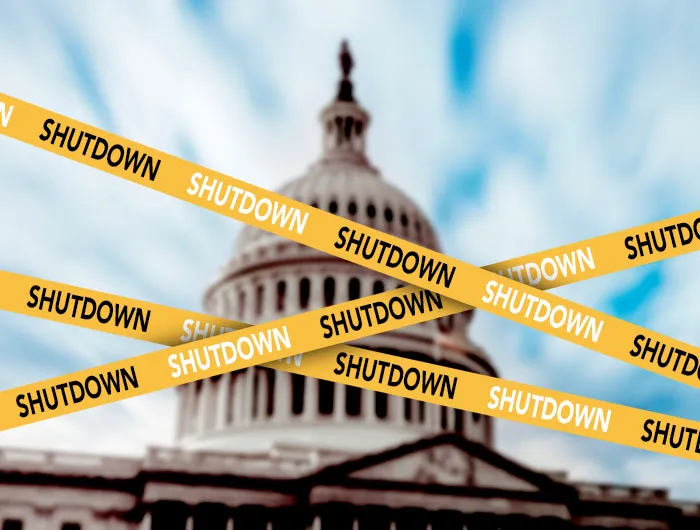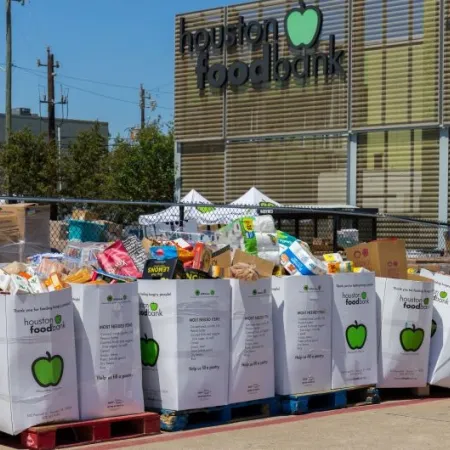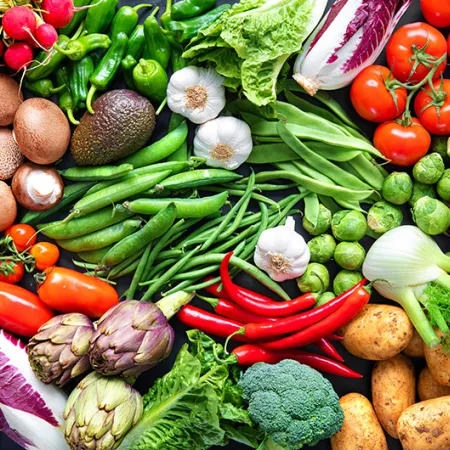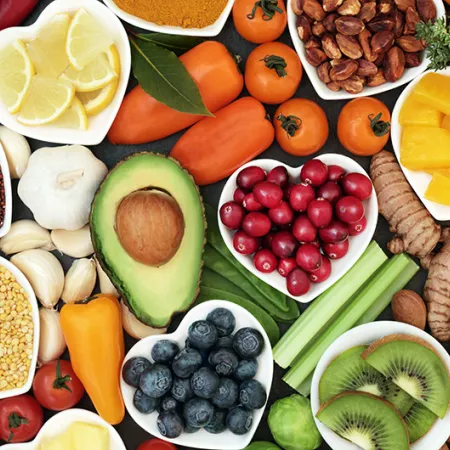The federal government has shut down, putting food and nutrition security, food safety, and healthcare at risk for millions of people. Tell Congress to protect nutrition and food safety by funding the government.
The government has shut down. What now?
On Wednesday, October 1, the federal government shut down, putting food and nutrition security, food safety, and healthcare at risk for millions of people.
With Congress unable to come to a consensus on the 2026 fiscal year budget, most government services have ceased. This includes halting discussions on funding for nutrition programs like the Supplemental Nutrition Assistance Program (SNAP), school meals, and the Child and Adult Care Food Program (CACFP), which may face serious disruptions. Additionally, food safety efforts, led by the FDA’s Human Foods Program, have been reduced to only bare-bones operations. Most concerning is that babies and mothers with young children may lose their food and formula benefits if the Special Supplemental Nutrition Program for Women, Infants and Children (WIC) runs out of funding next week, although some temporary measures are currently being explored.
Tell Congress we need a spending agreement that reinstates these programs and services and extends critical healthcare tax credits. End the shutdown now.
What happens during a prolonged government shutdown?
If the shutdown lasts beyond October 31 and the USDA contingency reserves are not approved and released, states will be forced to make difficult decisions to try to float nutrition programs on their own or halt services altogether. The loss of USDA Food and Nutrition Services staff from reductions in force and agency restructuring earlier this year will further slow response and recovery time. On top of this, the public will face increased risk for foodborne illnesses because the government will have to delay services like food inspections and outbreak monitoring.
Potential disruptions to nutrition assistance programs
While schools and childcare facilities should be able to continue serving breakfasts and lunches for the month of October, WIC is in a dire situation. Funding for WIC is expected to only last for about another week if temporary funding measures are not approved.
The Office of Management and Budget committed funds for SNAP for the month of October, but millions of families could face uncertainty about how they’ll afford food after that. According to the USDA’s 2025 contingency plan, SNAP could continue to be funded using contingency reserves, but the plan does not specify how long those funds will last. To make matters worse, the USDA has directed states to implement new time limits and work requirements by November 1st. With less than a month’s notice and limited federal support due to shutdown-related staff furloughs, states are being forced to rush major program changes. These conditions heighten the risk of errors, delayed benefits, and disrupted food access—leaving families hungry and states unfairly blamed for problems created by Congress’s inaction.
Strain on the charitable food system
Food banks are both directly and indirectly impacted by the shutdown, during a time when their services are particularly needed. Furloughed federal workers and disruptions to nutrition programs may result in more people relying on food banks for temporary assistance. The Emergency Food Assistance Program (TEFAP) is a USDA program that provides critical supplies of food for food banks to distribute to communities. The shutdown may delay these shipments at the exact time that food banks are facing increased demand.
Threats to food safety
The shutdown severely limits the FDA’s ability to ensure our food is safe. Food safety efforts are reduced to surveillance and emergency response only, meaning no routine food safety inspections. In addition, long-term work to prevent foodborne illness and diet-related disease has halted, jeopardizing public health. While the USDA’s Food Safety and Inspection Service will continue essential food safety operations for meat, poultry, and egg products, states may run out of funds to perform inspections.
Read more on how food safety is impacted during the shutdown
How you can help
Congress can avoid the worst of these outcomes by working together to pass a bipartisan spending bill that extends critical healthcare tax credits and fully funds essential government nutrition programs. Ask Congress to immediately end the government shutdown to ensure no disruptions to nutrition programs and a safe food supply.
Help protect nutrition and food safety







